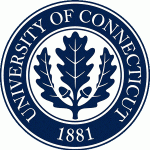Beginning in Fall 2023 semester, the Masters of Science in Quantitative Economics (MSQE) degree will be offered at the Stamford Campus.
The MSQE is a 30- credit (10 courses) program. Average completion time for full-time students is three semesters. We also offer an accelerated program for current UConn undergraduate students who wish to pursue a combined Bachelor of Science (BS) or Bachelor of Arts (BA) and Master of Science (MS) in quantitative economics. Students can simultaneously earn a Certified Business Economist® (CBE) professional certification. MSQE teaches marketable skills in economic decision-making, statistics, data analysis, data visualization, and machine learning. Students learn relevant software and programming languages, like Python, R, and Stata. This program will help alumni pursue successful careers as financial and data analysts, ML engineers, data scientists, and programmer analysts with top employers in Connecticut and beyond.
To request more information about the MSQE Program click here.
 Five
Five  Tyler Terbrusch (MSQE December 2018) and John Rolfe (MSQE December 2019) participated in a virtual MSQE Alumni Networking Panel on September 7, 2022.
Tyler Terbrusch (MSQE December 2018) and John Rolfe (MSQE December 2019) participated in a virtual MSQE Alumni Networking Panel on September 7, 2022. Tyler currently works at McLagan Data & Analytics, as a Consultant. John currently works at Spreetail as a Senior Demand Planner. They spoke highly of their MSQE training in Python, R, and Economic Theory, and gave several examples of how they use these skills in their current positions. They recommended applying early and often for summer internships.
Tyler currently works at McLagan Data & Analytics, as a Consultant. John currently works at Spreetail as a Senior Demand Planner. They spoke highly of their MSQE training in Python, R, and Economic Theory, and gave several examples of how they use these skills in their current positions. They recommended applying early and often for summer internships. Stephen Acquah, a 1st year student in the Masters of Science in Quantitative Economics (MSQE), was named a 2022-23 National Association of Business Economists (NABE) Scholar.
Stephen Acquah, a 1st year student in the Masters of Science in Quantitative Economics (MSQE), was named a 2022-23 National Association of Business Economists (NABE) Scholar. Huanan Xu
Huanan Xu
